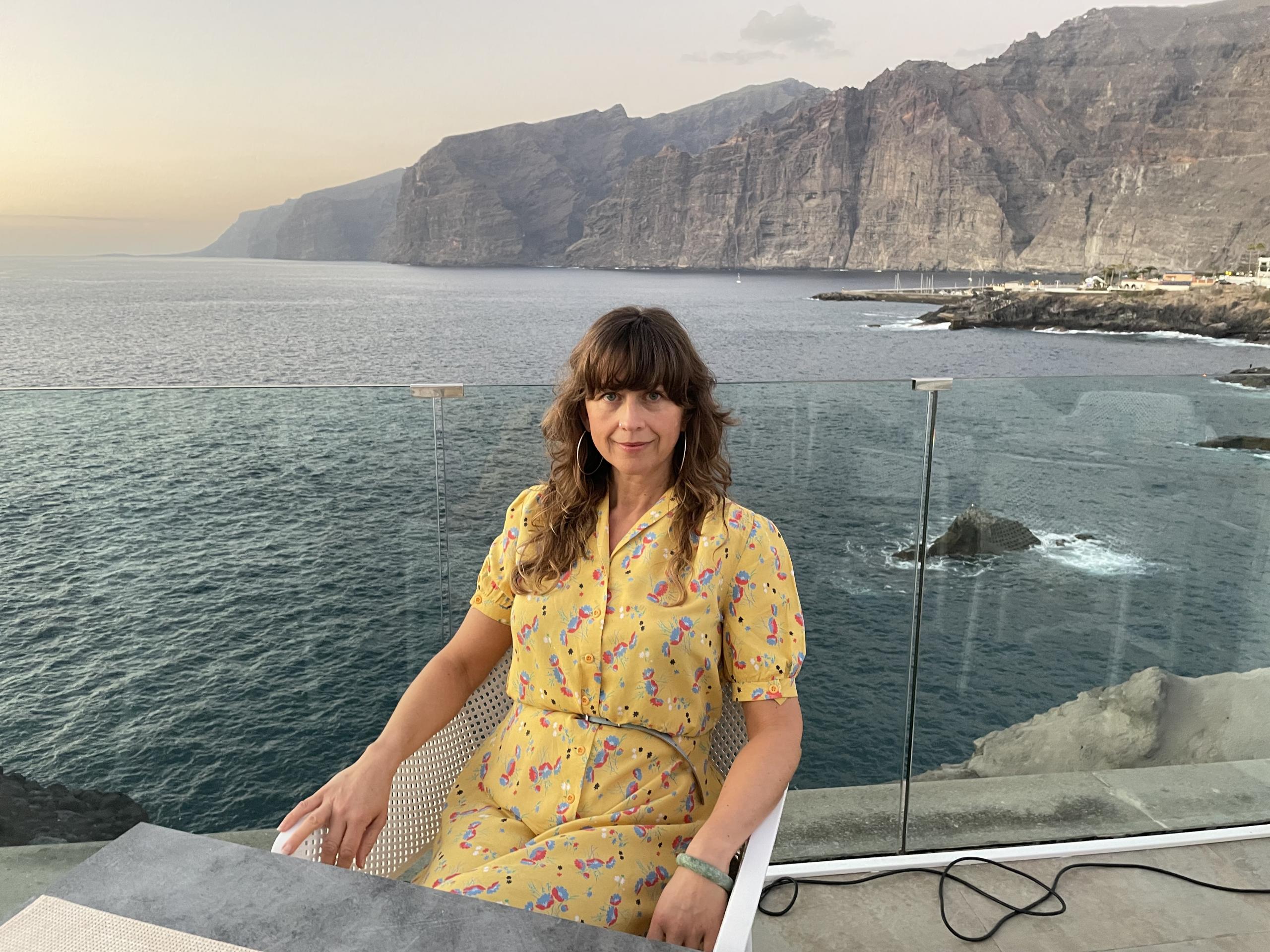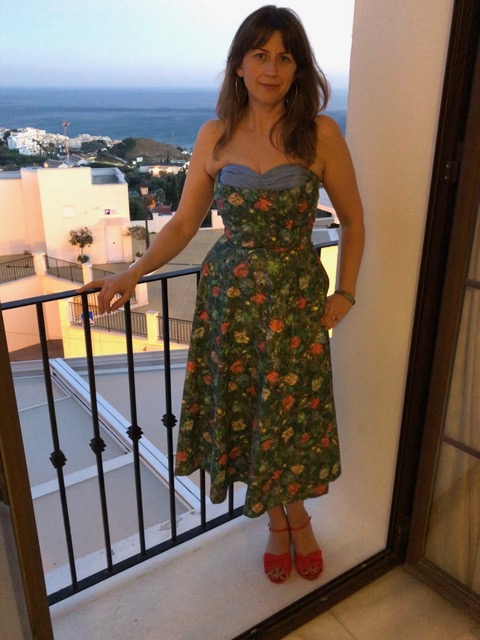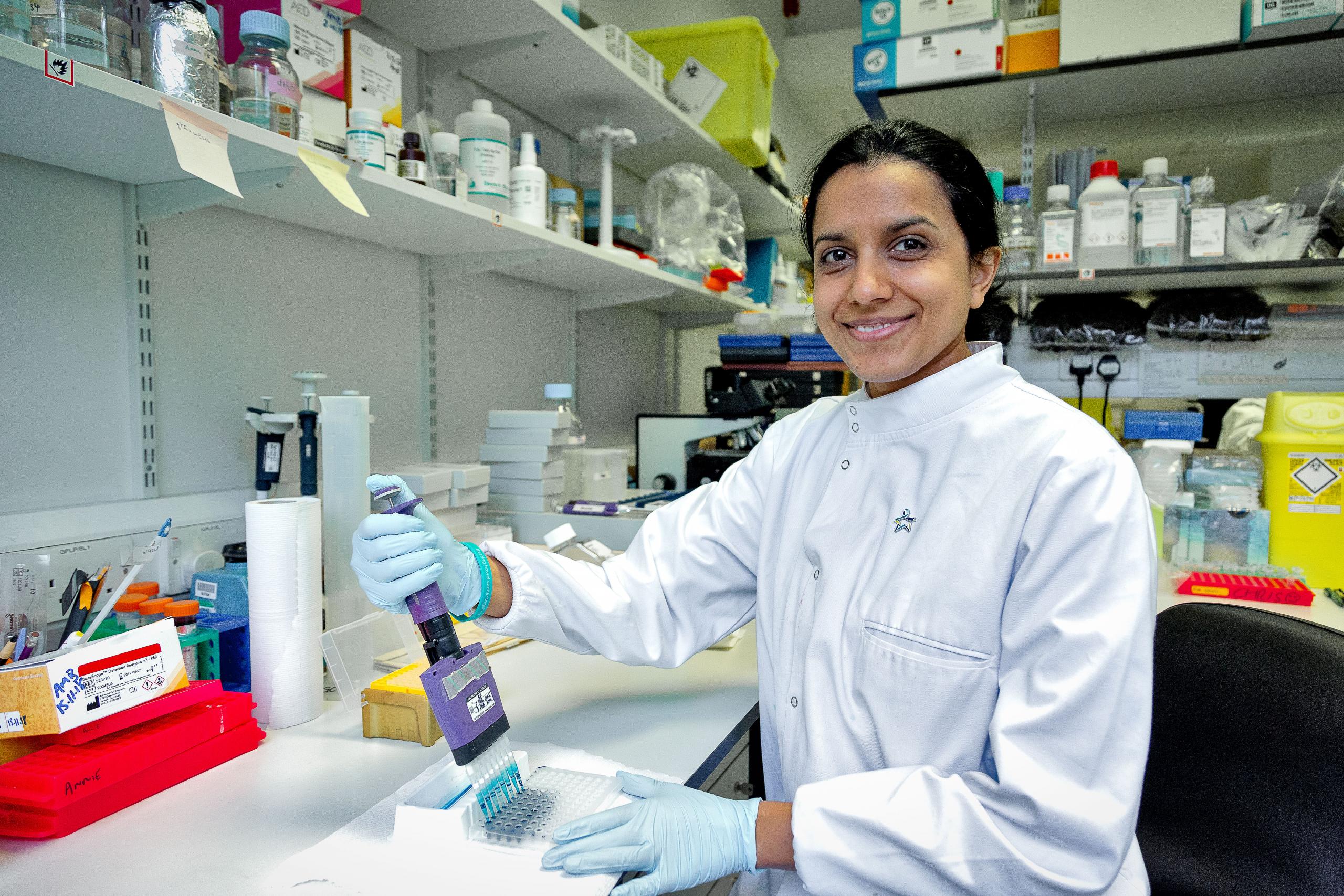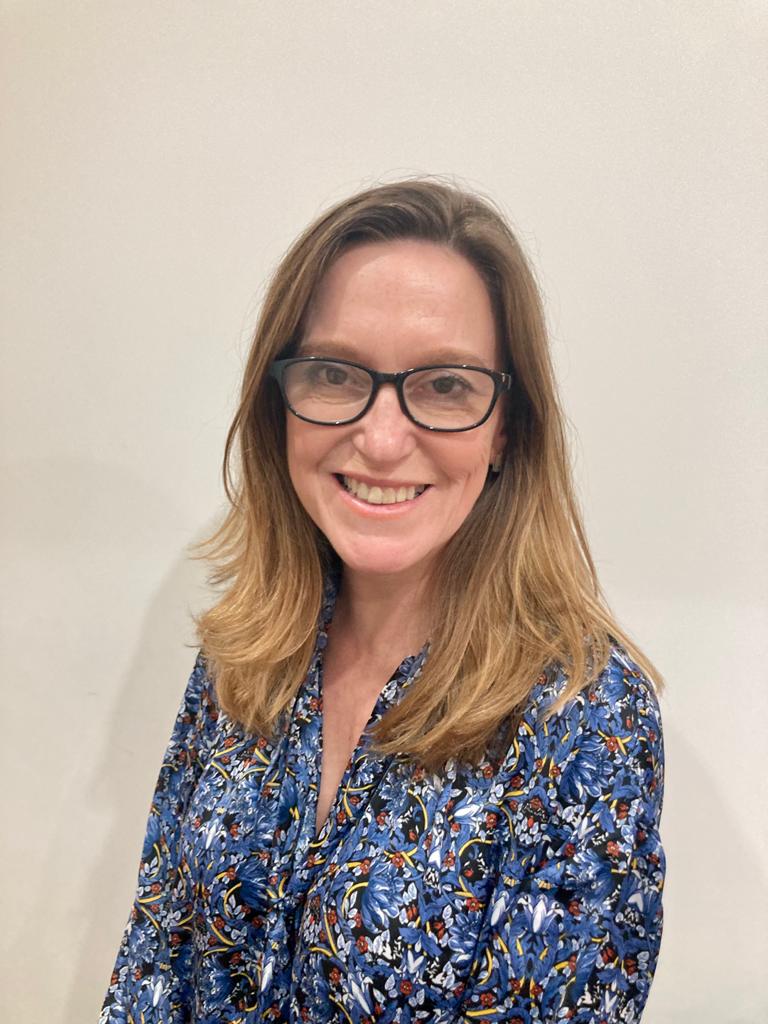Campaigning for change
Gillian Brodie, 48, from Liverpool survived bowel cancer and tells us why Bowel Cancer UK’s campaigns to improve early diagnosis and awareness of the condition are so important
Cancer always seemed something that just happened to other people – until 2014, when it happened to me. I had become a mum at 34, in 2007, then when I was 36 years old, I started to notice things weren’t quite right with my health. While a lot of pregnant women get haemorrhoids [piles], mine came about two years later and they were terribly, terribly painful. While all the other mums were bouncing back from those first couple of years of exhaustion, and my son was now sleeping through the night, I also felt completely drained all the time. I went to my GP and was just prescribed lactulose solution and Fybogel to help with the constipation I was experiencing.
Over the next few years, I went back and forth to my GP surgery with extreme pain in the piles, deep abdominal pain, pain in my back or hip and extreme tiredness, but ended up seeing a different doctor every time and not getting much help. I remember one doctor suggesting that I try laughter yoga!
I did insist on getting the piles checked at the hospital, but they literally had a quick look and said they weren’t bad enough to operate on. I tried to get across to them how much abdominal pain I was experiencing, but they said there was no point in doing a colonoscopy as they wouldn’t find anything. I was made to feel like a time waster and just thought, “Well, they’re the experts,” and tried to convince myself everything must be all right.
In June 2014, a few months before my 41st birthday, there was a tummy bug going around and I experienced diarrhoea for a few weeks. I’d always been someone who struggled to use public toilets, but I was literally having to run to the loo when doing the weekly shop. Then one day I spotted blood. I rang the GP immediately, who reassured me everything was probably fine, but I put my foot down and insisted she refer me for a colonoscopy. To her credit, she did refer me – albeit insisting I was too young for anything to be a problem – but only for a sigmoidoscopy, which just looks at the descending colon.
Despite all my symptoms, I didn’t expect them to find anything serious. I recall sending a jokey text to my husband about the hilarious pair of paper pants I had to wear and telling the nurses about our holiday we had planned the next week to the US and Canada. Then on the screen I just saw this green streak and angry looking black dot on my bowel, and the whole mood just changed in the room. I knew what it was the instant I saw it and my heart sank. The nurse took my hand and explained that they needed to take a biopsy. I was wheeled out of the room with my head in a total spin. I had to make the difficult call to my husband, who was 250 miles away for work, to tell him what they had found and he dropped everything and came immediately. I held it together until he walked in the door and then fell apart.
I was assigned a cancer nurse, Rachel, who was absolutely fantastic. She called me a few days after they had taken the biopsies to confirm it was a tumour, but reassured me it was not aggressive. I then had scans to see if the cancer had spread.
In the meantime, we got advice from Macmillan Cancer Support on how to explain things to my son, who had just turned six. He has autism, but has a really good understanding of things and was actually one of the easiest people to talk to. He toddled off and got his encyclopedia and came back with a diagram of the bowel, saying, “OK, Mummy. So you show me where it is, how big it is, and what they are going to do,” and we were very honest with him, as Macmillan told us to be.
In August 2014 – almost a month from the initial sigmoidoscopy – we eventually got the results of the scans, which showed I had a stage III rectal tumour, but it hadn’t spread to other parts of my body as I had feared. She said that as the tumour was quite small and didn’t appear to have broken out of the bowel wall, they should be able to just resection the bowel and I would have an ileostomy bag [a small bag that lies on the abdomen, attached to a small opening through which intestinal waste travels from the small intestine] temporarily while the bowel healed. We were absolutely over the moon with that.
Later that month, I had the surgery as planned to remove the tumour but was told that seven of the 19 lymph nodes they had removed were cancerous. I was recommended to have chemotherapy to mop up any stray cells. I was stunned as I thought I had dodged that, but decided it was the best option.
Over the next six months, I was on a two-week cycle of chemotherapy. I looked
exactly the same as, luckily, I didn’t lose my hair, so I kept it on the down-low and didn’t share with many people, but the treatment was hideous. I struggled with sickness, overwhelming tiredness, peripheral neuropathy [a condition affecting the peripheral nerves, which causes numbness and pain in feet and hands] and a vile flavour in my mouth that made it impossible to taste anything – a real blow when you’re a total foodie.
Five years later, in 2019, I was finally given the all clear – and here I am eight years later and still in remission! I’m eternally grateful for this bonus time and definitely live my life differently from the way I did before. I have taken up roller- skating, started a ukulele band, started writing and dancing again, taken up wild swimming and spend lots of time on my allotment. It’s really made me want to make the most of my life and fill it with stuff that brings me joy.
In recent years, I have also started wanting to get the word out to people and felt brave enough to post my story on social media – and I haven’t really shut up about it since! I even got in touch with Bowel Cancer UK to offer my services as an advocate.
During my treatment, a friend of mine put me in touch with their friend Mark, who had been through exactly the same thing five years before. To have someone to talk to who had had the same experience was just invaluable, and that’s something I want to offer to someone else, as well as spreading the word on the symptoms to look out for.
I feel so lucky to be where I am now. If I’d left it a year, things might have been very different. That is why I am passionate about the charity’s work campaigning for early diagnosis and better awareness of the condition, particularly in younger people. I recently went to see a colorectal surgeon who was shocked that I had bowel cancer at my age, but every year, over 2,500 younger people are diagnosed with bowel cancer in the UK. That’s 2,500 families affected, and young people left without mothers and fathers due to a cancer that’s so easily treated. We need to get the statistics out there and campaign for early screening so people aren’t left too late.
THE CANDIS BIG GIVE 2022:
BOWEL CANCER UK
Research into bowel cancer
Total raised: £40,185
The money raised in the Candis Big Give will go towards funding targeted research into bowel cancer, which is the second biggest cancer killer in the UK but is treatable and curable if diagnosed early.
The research will help experts to identify ways of preventing bowel cancer, improve screening, understand and identify people at high risk, understand bowel cancer in the under-fifties, and ensure best treatment and care for all bowel cancer patients. This will help to reduce rates of bowel cancer and increase survival rates.
One area of research is focused on reducing the rates of undetected bowel cancer. When people go for a colonoscopy (which is the diagnostic test to pick up either bowel cancer or precancerous changes), sometimes cancers can go undetected, and so researchers are looking at why that might be and how it can be reduced to help diagnose people earlier when their chances of survival are highest.
Researchers are also looking at ways to improve the use of a screening test called a fecal immunochemical test (FIT), which detects blood in someone’s poo before they have any symptoms, so it gets to the most people who can benefit from it.
More areas of research include looking at why bowel cancer affects younger people – it is most common in those over 50. They look at the genes involved in bowel cancer and how the gut environment affects bowel cancer in younger people, to see if it can help identify those who might be at risk earlier. They also look at how to improve uptake of bowel cancer screening in the south Asian community.
Visit bowelcanceruk.org.uk for more information.
WHAT BOWEL CANCER UK MEANS TO ME
Genevieve Edwards, chief executive for Bowel Cancer UK, explains why the charity’s work is so special
“I started working for Bowel Cancer UK six weeks before lockdown in 2020. While it wasn’t quite the start I imagined, it has been an awe-inspiring time to be part of the charity in many ways, as it has really shown the strength of the team. They care, are committed and go above and beyond, and have done all that from their spare bedrooms and kitchen tables over the last couple of years without losing an ounce of that spirit.
When I heard about the job at Bowel Cancer UK, I knew it was for me as it’s such a brilliant charity. It’s small but has a big impact raising the profile of bowel cancer. The thing with bowel cancer is it’s the fourth most common cancer and the second biggest cancer killer, but it’s very treatable if diagnosed early, so the work the charity is doing to fund research and raise awareness really will save lives. Survival rates have got better over the last 40 years and that’s down to research, better diagnosis and treatment, but there’s still a lot more to do. I recently spent time with some of the researchers we are funding, and it’s really, really exciting and inspiring work.
The bowel cancer community is also incredible, which makes working for the charity so special. They are very supportive of each other and us, and we know people by name. It’s a personal charity and the services and support we provide reflect that, as we always ask the community what they need and adapt what we are doing to meet those needs.
I’m learning every day – from the researchers, the fundraisers and the community – which is amazing and puts a spring in my step. Occasionally, someone will introduce me as the chief executive of Bowel Cancer UK and I still get goosebumps when they do that, as I’m so proud to be part of this fantastic team.”





Leave a Reply
Please login or register to leave a comment.